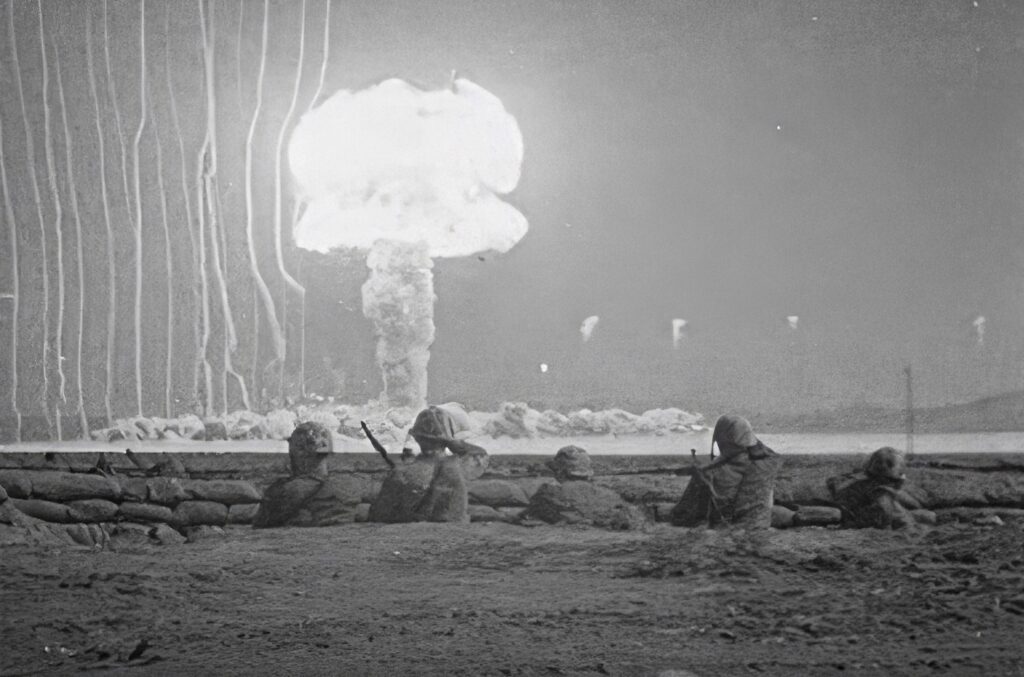In David Baeumler’s audacious short film ‘Safety’, we are catapulted into a post-WWII America, bathed in the illusion of newfound peace and liberty. Kevin Silva, our narrator and chameleon announcer, dons the voice of an all-American broadcaster, heralding an era of tranquility that feels like an archival dream. Baeumler’s use of genuine black-and-white footage stitches together the fabric of a nation at the precipice of hope, only to unravel it before our eyes.
The first half of ‘Safety’ is a nostalgic montage, a symphony of visual optimism that could fool even the most cynical viewer into believing in the myth of American invulnerability. The craftsmanship in post-production is nothing short of genius; every splice of pre-war and post-war imagery is meticulously orchestrated to resonate with authenticity. It’s a vintage love letter, whispering promises of safety.
But then, like a magician revealing his trick, Silva’s narration twists. The illusion shatters. The tone darkens, and the narrative pivots to expose a chilling underbelly of deceit. The American dream is painted as a fragile facade, its citizens more susceptible to threats than ever before. Baeumler doesn’t just shift the mood; he flips it on its head, dragging the viewer from comfort to confrontation.
‘Safety’ a meticulously crafted critique. It echoes with a near-dystopian quality, blurring the lines between a genuine public service broadcast and a cautionary tale born from hindsight. This experimental piece transcends typical cinematic boundaries, transforming archival footage into a haunting commentary on vulnerability and the peril of blind trust.
Baeumler’s ‘Safety’ is a riveting watch, a darkly educational experience that lands heavily. It’s a credit to the Beaumler’s post-production and narrative ingenuity, a reminder that history, however triumphant it may seem, is always more complex – and precarious – than it appears.


